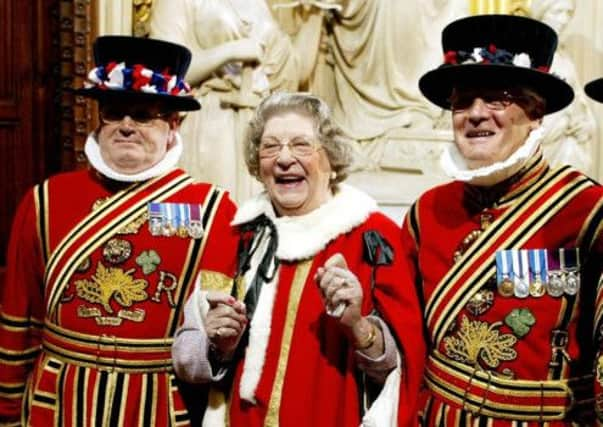Michael Fry: Second chamber to keep House in order


The Irish have voted against abolishing the Seanad, which has been the upper house of their parliament ever since the constitution of the state was adopted in 1937. The vote was narrow; to many, amid a general mood of disillusion in politics after the financial crash of 2008, this assembly of obsequious second-raters, or of failed and elderly party hacks, did not seem to have much of a future.
The matter is of wider interest because it had seemed likely to follow a trend in small countries. In relatively recent times, Denmark, Sweden and New Zealand have all abolished the upper houses of their parliaments. The quality of their democracy seems none the worse for it.
Advertisement
Hide AdAdvertisement
Hide AdOr rather, it was the quality of their democracy that let them dispense with what is otherwise seen as a vital element in a system of checks and balances, a second chamber for second thoughts on what has been done by a lower house more subject to voters’ prejudice, fear and greed. For example, the Italian senate has just covered itself in glory by cutting Silvio Berlusconi down to size.
In Scotland we have no second chamber. Our parliament is still a provincial legislature, and in theory any of its laws could be struck down at Westminster (though I would like to see Westminster try). But our parliament is going to become more powerful. Even if we stop short of independence in 2014, it will anyway acquire new competences likely to be the prelude to even more of them.
Some time during the coming evolution, we should stop to consider whether a second chamber for the Scottish Parliament might be a good idea. The quality of the democracy in Scotland that has emerged since 1999 is far from admirable. It owes most of all to Labour’s authoritarian pork-barrel tradition. The Nats have had no choice but to take it over if they want to compete for disillusioned voters: that is the main battleground of our politics.
The pork-barrel is bad enough, the established practice that any sectional group in society capable of the necessary organisation can get the government of Scotland to grant it favours in the hope of its future votes. This applies to everybody from white settlers in the Highlands who fancy the practically free gift of a croft to campaigners for a Borders railway on which hardly a soul will travel.
But the authoritarianism is worse. Our rulers readily go on from flighty benevolence to an assumption that, governmental intervention being in itself always desirable, they are entitled to interfere with our personal behaviour – for our own good, needless to say. We began with smoking and drinking, and skirted by an attempt to stop us smacking our kids before arriving at a mission to suppress racism and sectarianism or hooliganism in general that now results in the persecution of boisterous but otherwise peaceful football fans.
We should not ignore social problems, but the common law on breach of the peace is adequate for most minor offences without new statutes to target them specifically. Worrying is the underlying assumption that government can achieve anything it wants just by legislation – and that, because it is assumed to have this ability, there is nothing it should shrink from in terms of legislation.
In this sort of political culture, checks and balances become essential. Events do from time to time occur that shock and outrage public opinion, that evoke a knee-jerk reaction from politicians and then may result in innocent people being locked up for years on some convenient pretext: we have seen this happen in the UK in recent decades, though fortunately not in Scotland. We cannot guarantee an all-powerful state will remain a good fairy, or at worst a Dutch uncle. It can become vengeful and unjust too.
Constitutional systems have developed bulwarks against this sort of degeneration, and an upper house is one of them. Here politicians, preferably selected on a different basis from those in the lower house, can pause and reflect, then ask their colleagues in the other place to think again. This was a function that the old House of Lords, before the various bungled attempts to reform it, used to perform quite well, even though it lacked a democratic mandate.
Advertisement
Hide AdAdvertisement
Hide AdPerhaps nations like Denmark and Sweden can do without this sort of refinement to their admirable democracies. But they are old, settled and civilised polities with homogeneous populations where most economic and social problems have been solved. They are in that sense different from Scotland, where economic and social problems still press on us in a political system marked by visceral hatred between its two biggest components. It is a formula for potential executive excess. Checks and balances, not least a second chamber, are the guarantee against that excess. This is not a matter of some lack in the ability of Scots to rule themselves. Rather it is a matter of how we can do it better.
The Scotsman Conferences is hosting a series of events capturing the many facets of the Scottish independence debate. 3 December sees a formidable line up of expert speakers tackle “The Independence White Paper: A Business Plan for Scotland?” For more details on this and other great events please visit www.scotsmanconferences.com